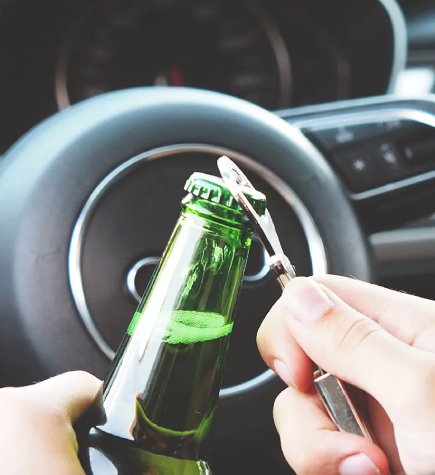
Home » Entering Canada with a DUI
Having a criminal record, or simply even having been recently arrested can impact a person’s ability to enter Canada. In fact, having even one DUI offense on your record can prevent you from being allowed to enter Canada.
Canadian border agents have the ability to turn away anyone based on the fact that they have a criminal record, even if the offense occurred a long time ago, and in some cases, even if that offense was dismissed by the court.
At KLM Immigration, our experienced Canada DUI entry lawyers are here to help those with criminal records and DUI offenses gain entry into Canada. Contact us today with your Canada DUI entry questions.
Having even one DUI offense on your record can prevent you from being allowed to enter Canada. In fact, Canadian border agents have the ability to turn away anyone based on the fact that they have a criminal record. Even if you have proper documentation, entry to Canada may be denied to you. People, who have been arrested or otherwise convicted for a drunk driving offense, or a driving under the influence of drugs or any controlled substance offense, could very well be denied entry into Canada. The Canada Border Services Agency (CBSA) officers reserve the right to admit or deny entry to any foreign citizen once they present themselves at any Canadian border entry point.
You may not plan to drive while you are in Canada. However, if you have a criminal record in the United States for driving under the influence of alcohol or drugs, whether it is a traffic violation, a misdemeanor or a felony offense, you may be refused entry into Canada, even if you fly. Our Canada DUI entry lawyers can help you. Contact us today, and entering Canada with a DUI can be made possible.
Entering Canada with a DUI conviction is extremely difficult. The question we get a lot is “what about other types of offenses related to driving while intoxicated?” Driving under the influence, also known as DUI, is by far the most recognizable acronym in the US and Canada. However, any conviction related to operating a vehicle while intoxicated can be considered a serious crime in Canada. Matters relating to entering Canada with a DWI, DUI, or any other offenses related to impairment should be handled by a Canadian DUI entry lawyer.
Sometimes you can get a DUI because you had physical control of a vehicle, even if you were simply parked, but you weren’t planning on driving. To clarify, a “motor vehicle” could very well be a boat, a motorcycle, an all-terrain vehicle (ATV), or a dirt bike, in addition to cars and trucks.
Other driving charges that could make someone inadmissible to enter Canada are:
Certain traffic violations, such as Operating While Intoxicated (OWI) and DWAI (Driving While Ability Impaired), in the state of New York or New Jersey, could also make a person inadmissible to enter Canada.
Other charges such as wet reckless driving, dry reckless driving (no mention of intoxication), dangerous driving, negligent driving, or careless driving, can also make you criminally inadmissible to enter Canada. For example, if you were charged with driving a boat while intoxicated or if you were operating a motorized lawn mower or a golf cart while intoxicated, your entry to Canada could be compromised.
Entering Canada with a DUI is possible, and we can help you go through the necessary process. Contact us today to speak to one of our immigration attorneys specializing in criminality and inadmissibility.
It is possible to enter Canada despite having a criminal record due to a DUI conviction. One must apply with the Canadian government to receive a waiver to visit the country. That can be useful to someone who plans to travel to Canada in the future. There are two ways to overcome your admissibility:
Once criminal rehabilitation is granted, the visitor gets a new start, and they can enter Canada freely. The CR doesn’t require a renewal. Entering Canada with a DUI is attainable. Contact us today to determine if you are eligible to apply.
Criminal rehabilitation, unlike the temporary resident permit, is a permanent solution for overcoming inadmissibility due to having a criminal record. A person, regardless of the severity of the crime committed, becomes eligible to apply for criminal rehabilitation once five years have passed form the moment where they have completed all conditions of their imposed sentence. For example, if you have been convicted of a DUI in July 2010 and have completed all conditions of the sentence, including probation (even informal probation) in July 2013, you will become eligible to apply for criminal rehabilitation as of July 2018. The application process is a lengthier one than an application for a TRP and requires more documentation, however, once approved, you will be allowed to travel to Canada with no restriction from that moment on, as would anyone else who has never been convicted in the first place.
NOTE: In some cases, it is possible to simultaneously apply for both a TRP and Criminal Rehabilitation due to the different time delays in the processing of each application. Please contact one of our criminality lawyers for further information.
The abbreviation DUI stands for “driving under the influence” of a substance. The latter could be alcohol or any drug such as
By law, it is still illegal to drive a vehicle in North America while being intoxicated. If you get stopped and arrested for driving while impaired, it could become a DUI offense, and you could be convicted. Once that happens, a conviction can easily stop you from entering legally to Canada.
As DUI laws can greatly vary from state to state, in some cases, it could make a difference whether you are admissible or not to enter Canada. Our Canadian immigration lawyers know the specificities of Canadian and US DUI laws, and are very familiar with DUI laws of each state. We have helped thousands of American citizens over the years. Contact us today to discuss your options.
Generally speaking, if you have only one minor offense on your record, such as a DUI for example, and the conviction was later dismissed, you should be allowed to enter Canada. However, there are numerous other factors to consider in order to make sure that your previous conviction would not stop you from entering Canada. In certain cases, as is the case for example for pilots and other professionals who must be certain that no issue will ever arise at the border, an individual may request a determination of admissibility from the Canadian government, confirming that their past criminal offense does not make them inadmissible to Canada. The process is similar to that of a TRP application, and once your application is “approved” you will have the certainty and peace of mind that you are allowed to enter Canada freely as would anyone else with no criminal record.
The term “deemed rehabilitated” refers to anyone who, after a certain amount of time has elapsed, becomes admissible to enter Canada again, despite a previous criminal conviction. Generally speaking, after 10 years have passed from the moment that someone has completed all conditions of their imposed sentence, and the offense in question was a non-serious criminality offense, they become deemed rehabilitated by the effect of time.
This would often be the case for offenses such as a DUI, DWI, OWI, simple assault, theft under $5,000, reckless driving, possession of certain controlled substances etc. A lawyer specializing in criminality and inadmissibility can confirm that you are deemed to have been rehabilitated by drafting a legal letter of opinion which explains the situation. A similar type of legal letter can also serve to assist those individuals whose case has been dismissed and who do not have any other offense on record.
Yes. In cases where an individual is required to travel to Canada on short notice, be it for a last minute business meeting, a personal emergency or because they simply only found out recently that their criminal record may prevent them from entering Canada, an application, called an Expedited Temporary Resident Permit can be prepared on behalf on the client to be presented for review on the spot at a border crossing by an immigration officer.
Some of the more common offenses for which you may get refused entry into Canada include the following:
At KLM Immigration Inc, our lawyers are ready to assist you with your case. Entering Canada with a DUI is possible. We are here to help you, and make sure the process is easy and fast. Call us today at 1(888) 603-3003 to speak to a lawyer.

A Temporary Resident Permit, also referred to as a TRP is a temporary solution to overcoming one’s inadmissibility to Canada.
Learn more
Criminal rehabilitation is a process, much like a “pardon”, by which you can overcome your inadmissibility to Canada permanently.
Learn more
Are you worried about the potential impact of your criminal record on your eligibility to enter Canada? A Canadian immigration attorney from KLM Immigration can help. Our Legal opinion letter for entry to Canada service might be all you need to enter the country. Speak directly with one of our experienced Canada entry lawyers today and take the first step towards successfully crossing the Canadian border despite past criminal history.
Learn more
A Canadian citizen or a citizen of another country who does not require a Visa to travel to the US and who has a criminal record must first apply for and obtain a US Entry Waiver prior to traveling to the United States.
Learn more
A Canadian record suspension or pardon is a process by which a Canadian citizen or a foreign nation who has committed an offense in Canada, may ask the Canadian government to pardon his crime.
Learn moreInquire now